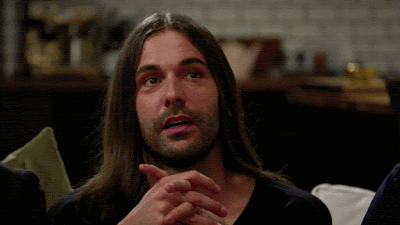The first chapter is (sh)amazing. Nay, the first sentence is amazing, and almost (spoiler alert) spoils the whole book. "The day Somebody McSomebody put a gun to my breast and called me a cat and threatened to shoot me was the same day the milkman died." The main character, who is never named
goes on to explain that this guy called the milkman was trying to insinuate himself in her life. "I didn't know whose milkman he was. He wasn't our milkman. I don't think he was anybody's. He didn't take milk orders. There was no milk about him. He didn't ever deliver milk. Also, he didn't drive a milk lorry." (That's page two.)
I'm spelling this out because this is one of those new fangled, old-fashioned books that isn't very plot driven. Basically, that's the plot: the milkman tries to ingratiate himself, he's eventually shot and Somebody McSomebody sticks a gun in her breast. And yet, it is 350 pages of beautiful English language about life in Northern Ireland during "The Troubles". Occasionally it veers into the territory of how when women band together, they can accomplish amazing things (like momentarily put an end to street violence that overtakes a town or help a girl out in the 'Ladies)
and occasionally how women do awful things to each other, by creating and prolonging misery just to have a moment of power in their otherwise powerless lives. Or they're so beat down by a paternalistic, patronizing community that they themselves maintain the very power structures that are detrimental to their lives and happiness.
Milkman was difficult to read, I ain't gunna lie. The chapters are like 50 pages long, there's a new paragraph only about every three pages, it was about a time that I don't know that much about, and, did I mention no one in the book is called by their name? There's Maybe-boyfriend, the Milkman, of course, then the actual Milkman (who delivers milk), first sister, second sister, First-Brother-in-Law through Third, and the Wee Sisters, who are actually three very charming younger sisters, and many, many others. Actually, the names are not a problem, I loved that aspect, and Burns is brilliant about how she helps the reader maintain the thread with this large family. Despite the challenges, it was a really rewarding book to read, and my copy is now full of underlined, insightful phrases, things to look up, definitions of words I didn't know.
There are a lot of themes that run through this book but one of the major ones is that people who live in war zones are traumatized. It sounds simple, but, unfortunately, think of what a huge population of this earth lives in violent communities. Not only is it hard/impossible to invest in society/arts/humanity as a whole, but the trauma to the individual is a heavy burden that's nearly impossible to overcome. Maybe-boyfriend says, "It's that you don't seem alive anymore. I look at your face and it's as if your sense organs are disappearing or as if they've already disappeared so that no one gets to connect with you." Or, as Jonathan Van Ness might say it:
SO! Where does all this leave us? A challenging book, not plot driven, let's face it: a very depressing look at a violent place in time that destroyed so many lives (did I mention parts are quite funny?) I really think this book probably isn't going to be everyone's cup of tea, but it was a journey I'm glad I took.










No comments:
Post a Comment